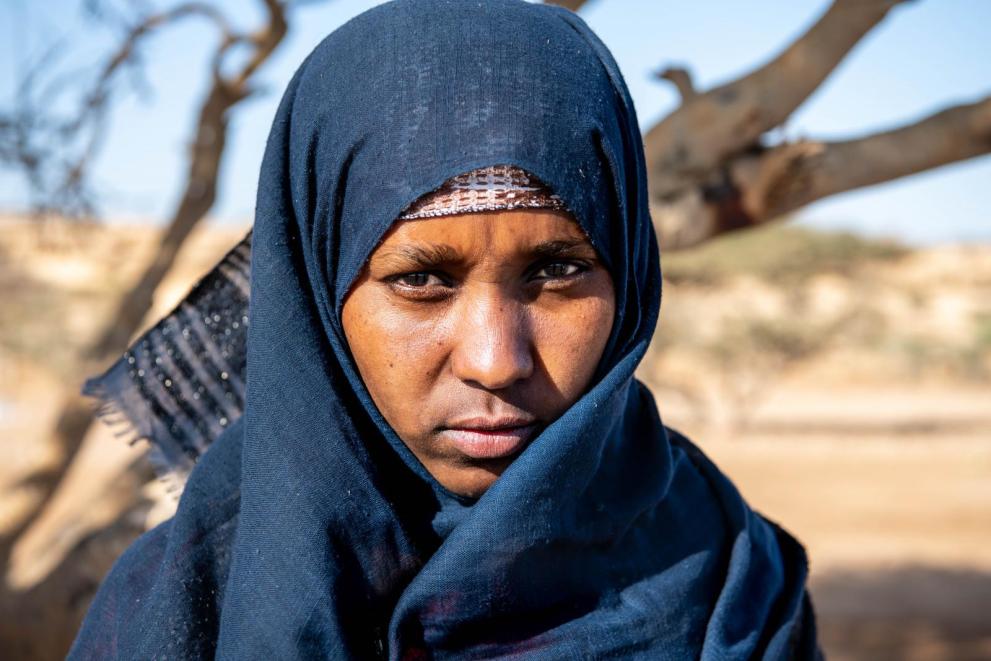
Thanks to projects implemented by the Emergency Trust Fund for Africa (EUTF) in the Horn of Africa, 4.4 million people have improved access to basic services including education, health, sanitation and electricity. Moreover, since the start of its implementation, 31,800 returning migrants benefitted from reintegration assistance, in the form of immediate assistance on arrival, psycho-social support, skills training, education or medical help.
These are some of the main results of the 7th Monitoring and Learning System (MLS) report of the EUTF Horn of Africa, providing information on the results achieved from start of activities until end of September 2019. They give an overview of the EUTF's response to the challenges of the Horn of Africa region when it comes to irregular migration, forced displacement, and instability. Together with the MLS case studies, it allows to identify opportunities, best practices, and innovative approaches to improve the programming and implementation of project.
Quarterly results mentioned below refer to the period of July – September 2019.
Greater economic and employment opportunities
So far, more than 31,000 jobs were created across the region and over 163,000 people were assisted in developing income-generating activities –15,000 in the third quarter of 2019 alone. Moreover, 27,000 people benefitted from professional training (TVET) and/or skills development. For example, RE-INTEG, a multi stakeholder programme that is working to find long term, durable solutions to displacement in Mogadishu (Somalia), has created close to 3,600 jobs and supported almost 6,000 people in developing income-generating activities.
See how Mohamed Hassan, a member of an IDP community in Mogadishu, speaks about one of the ideas he is developing that can help generate employment and recycle food in his community:
Furthermore, over 2,100 Micro, Small & Medium Enterprises (MSMEs) were created or supported in the third semester of 2019 - almost ten times more than in the previous quarter. Since the beginning of the EUTF’s activities in the Horn of Africa, over 4,500 MSMEs have been created or supported, with the largest numbers in South Sudan (1,872) and Ethiopia (822).
Strengthening resilience of communities and in particular the most vulnerable including refugees and other displaced people
More than 3.5 million basic services, such as healthcare, education, legal aid and access to energy, have been delivered to vulnerable populations in the Horn of Africa region. Additionally, 149,000 people received nutrition assistance in the third quarter of 2019 alone. This is largely attributable to the Improving Nutrition World Food Programme (WFP) project in Sudan, which is running nutrition centres across eastern Sudan, providing health checks and protein-rich supplementary foods, as well as training on nutrition practices. Since the start of its implementation, this programme has provided nutrition assistance to more than 815,000 people from the most vulnerable communities in the country.
Improved migration management in countries of origin, transit and destination
Between July and October 2019, over 88,000 migrants and potential migrants were reached by information campaigns on migration and risks linked to irregular migration. In total more than 212,500 have been reached through such campaigns so far. The Better Migration Management (BMM) is responsible for 119,000 of these. Last year, the BMM developed a booklet aimed at Ethiopian university and graduate students as well as young professionals, who may be interested in continuing their education abroad. The booklet contains a selection of scholarship opportunities available to Ethiopian citizens and/or nationals wishing to study through government-funded scholarships.
Since 2016, more than 31,800 returning migrants benefitted from reintegration assistance, in the form of immediate assistance on arrival, psycho-social support, skills training, education or medical help. Furthermore, 58,700 migrants in transit, children in mobility, internally displaced persons (IDPs) and refugees/asylum-seekers have been protected or assisted.
Improved governance and conflict prevention and reduction of forced displacement and irregular migration
Over 56,300 people have participated in conflict prevention and peacebuilding activities - 11,000 reported in the third quarter of 2019 alone. As an example, to help foster peace, prosperity and local development in the border region of Turkana (Kenya), which historically has been beset by conflict and insecurity, Pact's Selam Ekisil project supports the annual Tobong’u Lore cultural festival.
Furthermore, 19,500 staff have been trained on security, border management, countering violent extremism, conflict prevention, protection of civilian populations since the beginning of EUTF activities.
You can find the full MLS 2019 Q3 here, including results by country.
Details
- Publication date
- 11 March 2020
- Region and Country
- Horn of Africa
- Thematic
- Other
